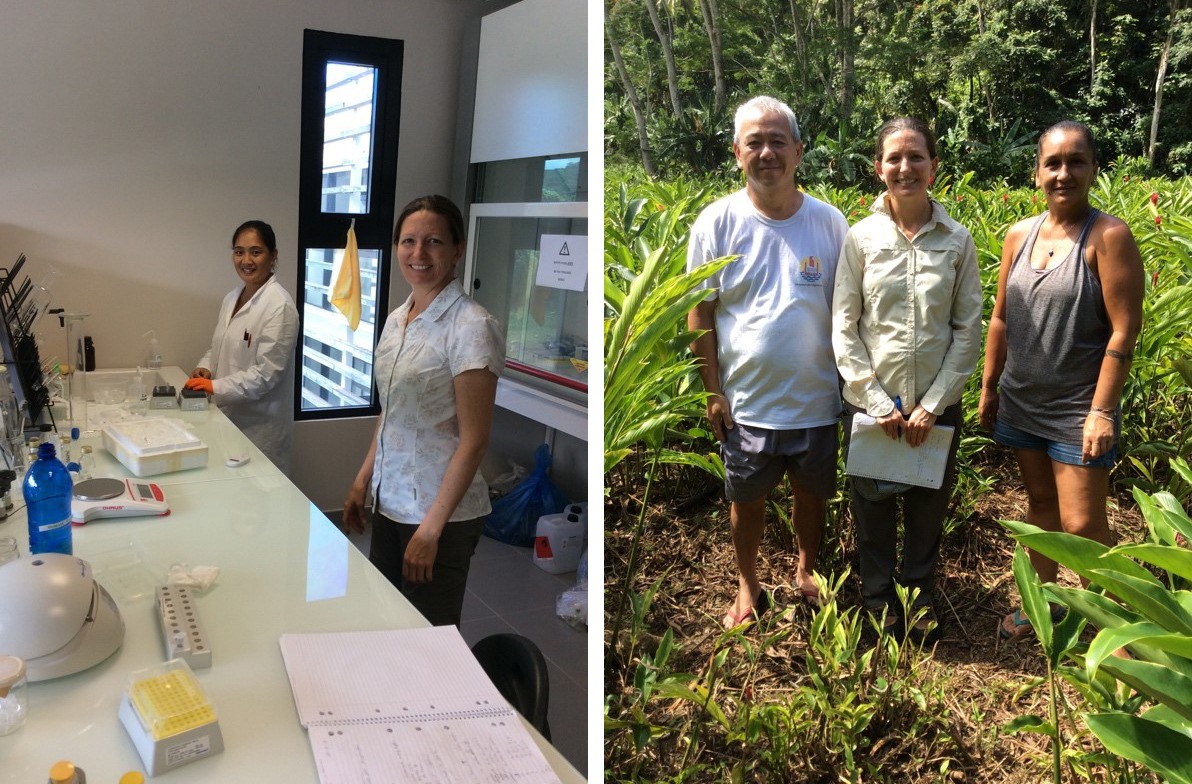

Announcing the 2022 Crawford-in-Queensland International Engagement Award Winners
July 28, 2022

The Crawford Fund QLD Committee supports targeted training and mentoring of overseas scientists and extension officers by experienced Queensland counterparts working on similar agricultural research challenges.
This year, three International Engagement Awards are being made to researchers at Griffith University and the University of Southern Queensland (USQ). The three training projects will see collaboration with researchers at other universities, including Fiji National University and the University of the Sunshine Coast and will involve engagement with Fiji, Samoa and Thailand.
“Once again, we had a strong set of applications for our engagement awards. We have no doubt that supporting Queensland scientists to work collaboratively with overseas scientists from our region provides a win all round, helping strengthen Queensland expertise while promoting technology exchange and collaborative research,” said Professor Bob Lawn, honorary coordinator of the Crawford Fund Queensland Committee.
We are pleased to announce the three 2022 winners for training and mentoring awards, they are:
Dr Lila Singh-Peterson, from the University of Southern Queensland with support from Dr Mereia Fong Lomavatu at Fiji National University; and Ms Roselyn Nunn and Professor Patrick Nunn, both from the Sustainability Research Centre, University of the Sunshine Coast.
The training project being undertaken by Dr Singh-Peterson and her colleagues aims to assist knowledge brokers – community leaders, agricultural extension officers, local researchers, and officers from Fiji’s Provincial Offices – to respond to local threats of food insecurity attributable to a changing climate in rural Fiji.
The proposal aims to support and strengthen knowledge brokers’ capabilities through a series of facilitated training workshops. The workshops will identify a suite of strategies which are useful, compatible with local conditions and culturally appropriate, and develop training materials explaining the selected strategies.
Dr Bree Wilson, Centre for Crop Health, University of Southern Queensland will lead training to build the capacity of Samoan scientists in Plant Pathology: Isolation and identification of causative agents of postharvest rots of sweet potatoes. This research will complement an ACIAR pilot project (ACIAR HORT 2018/195).
The objective of the training is provide collaborating Samoan scientists with the skills they need to identify important diseases of sweet potato.
The consumption and production of sweetpotato in Samoa is growing and this training will contribute to improving food security through new knowledge on diseases in Samoa including a diagnostic protocol and basic disease manual.
Dr Ido Bar, Centre for Planetary Health and Food Security, Griffith University with support from Professor Rebecca Ford, Centre for Planetary Health and Food Security, Griffith University will undertake a genome-wide association study for anthracnose resistance and fruit quality traits in Thai chilli germplasm.
Chilli is an economically important spice crop of Thailand. It is widely used for fresh consumption and in the food industry such as in chilli paste and sauces. In 2015, the income for export of chilli pastes and sauce from Thailand was approximately $70 million.
A great challenge for the Thai chilli breeding program is to breed for high yield, acceptable fruit quality traits and resistance to some diseases due to the climate of Thailand which is highly conducive to pest and pathogen invasions. Of these diseases, anthracnose is a severe and major damaging disease of chilli fruit, especially in hot and high humidity environments. The causal agent for chilli anthracnose is Colletotrichum spp. with three common species: Co. truncatum, Co. scovillei, and Co. siamense.
In Australia, the Bowen and Bundaberg areas of Queensland are the largest chilli growing region with over 1,700 ha of chilli plantations, producing 38,913 tonnes/year. In the humid subtropical climate of Bundaberg, plant pathogenic fungi such as Colletotrchum spp. can easily cause anthracnose disease, as seen in Thailand. Therefore, the improvement of anthracnose resistance in chilli cultivars will be the most efficient solution for chilli production in both countries.
The goal of this research is to identify the potential candidate SNPs associated with chilli quality traits and anthracnose resistance through genome-wide association analyses. In future research, associated SNPs may be validated and then implemented for marker-assisted trait selection within chilli breeding.
Anthracnose has wide host ranges, including mango and papaya. Understanding the resistance mechanism from chilli can be applicable to other economically important crops in QLD.


